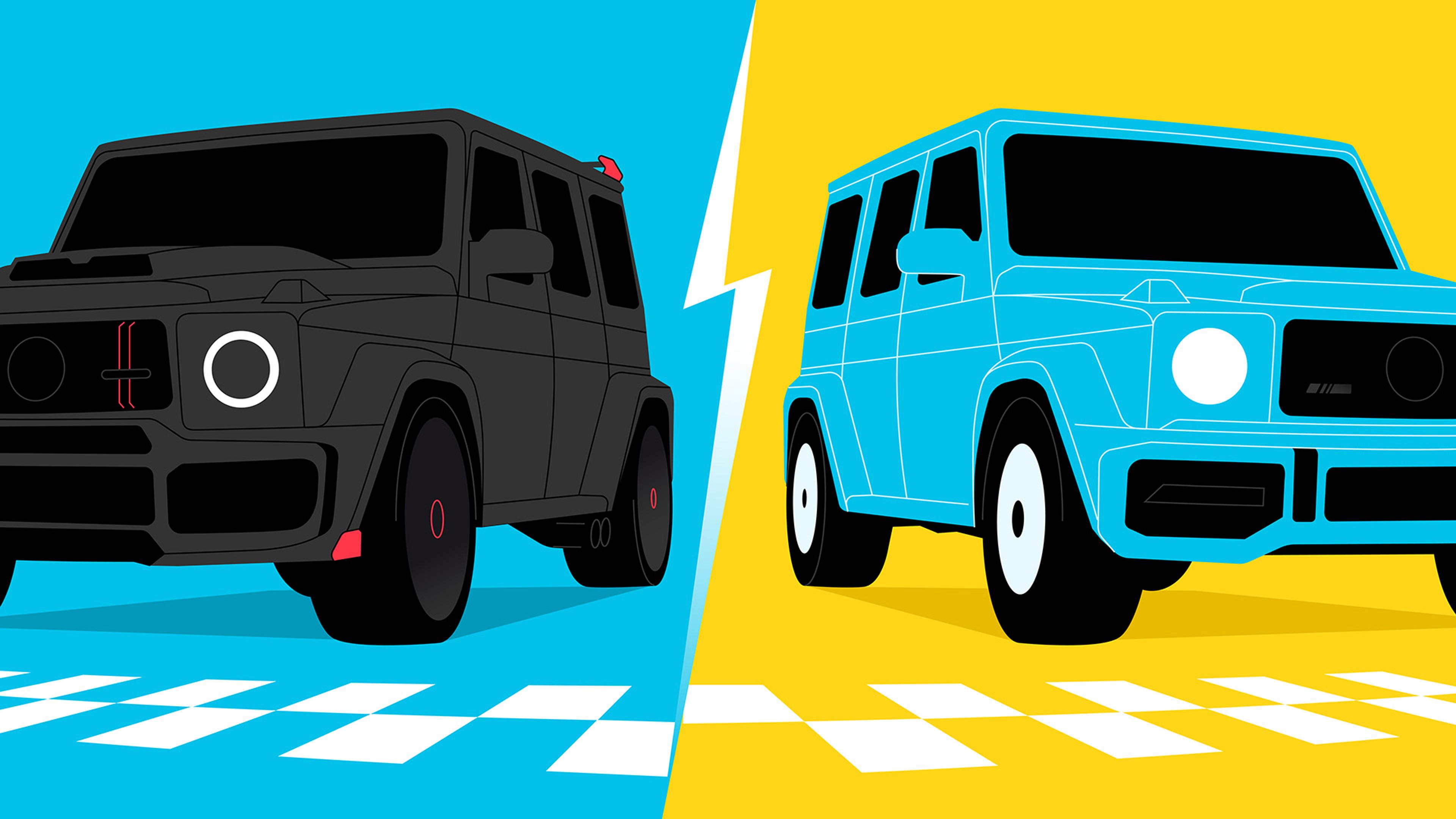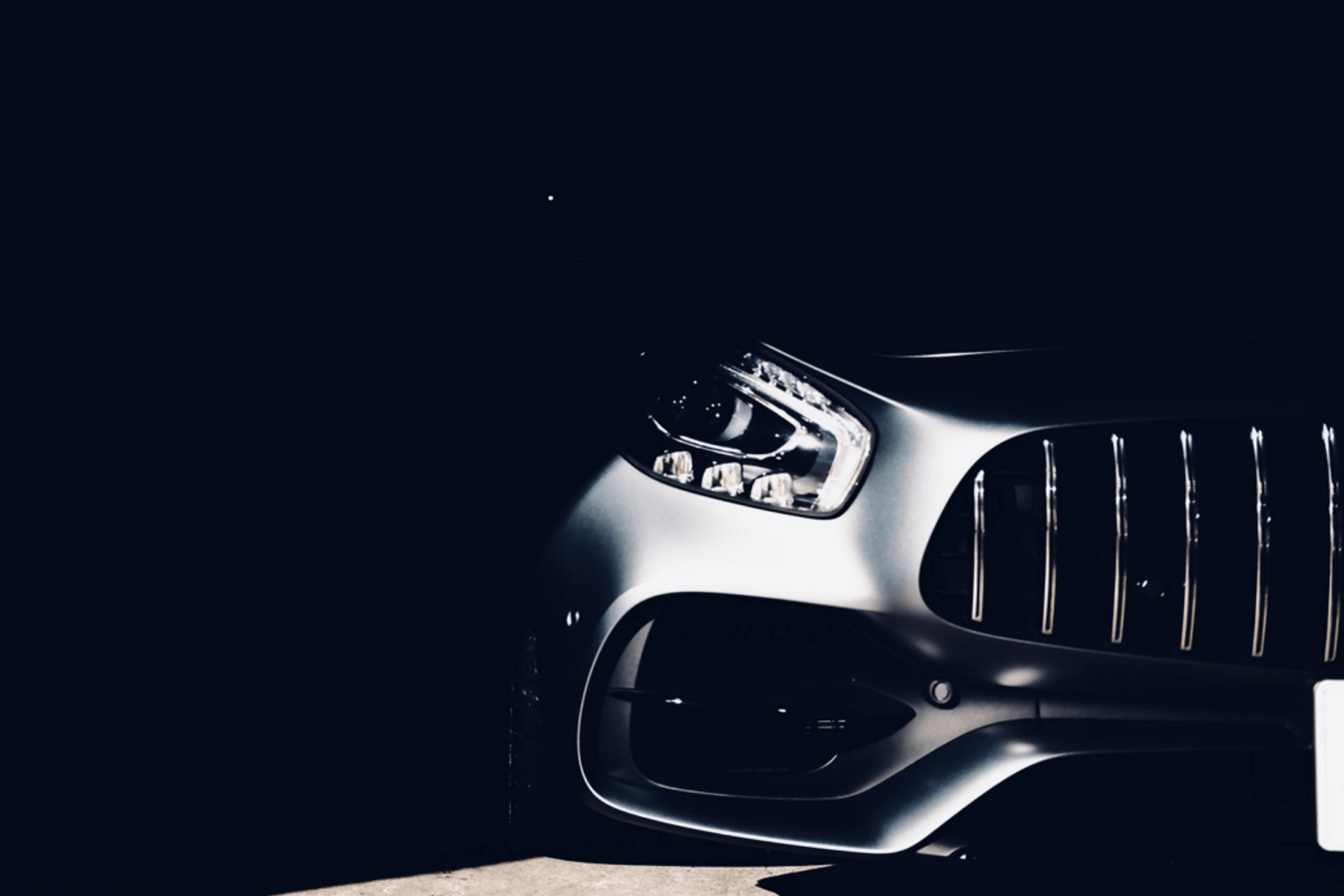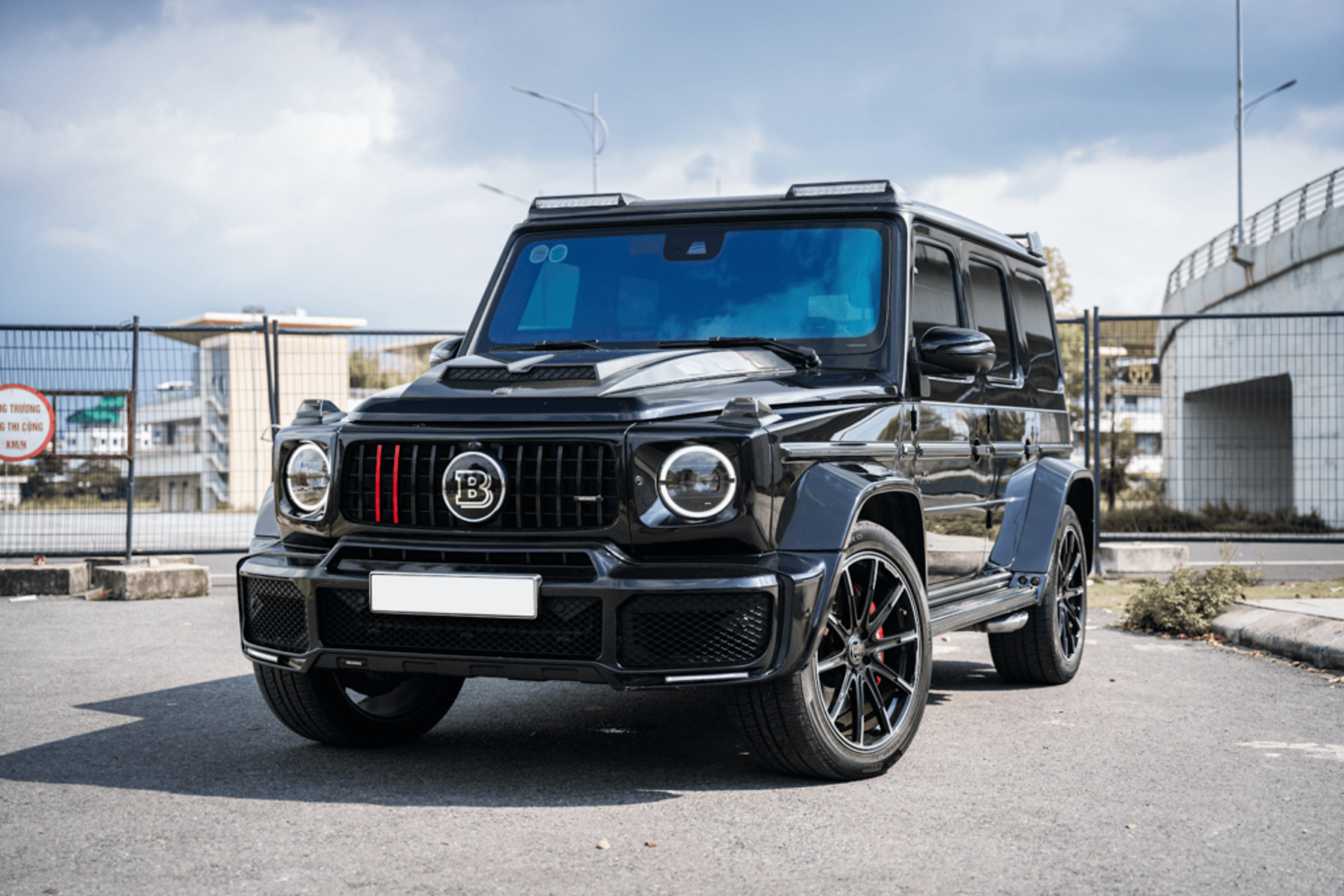30/01/2023
BRABUS vs. AMG cars: who makes better Mercedes-Benz modifications?

Evaldas Zabitis

While Mercedes-Benz is often considered the pinnacle of luxury and comfort, this isn’t something the staff at BRABUS and AMG agrees with. For several decades, they have been tuning Mercedes-Benz cars, providing them with more power and luxury. So what’s the difference between BRABUS and AMG, what makes them so exclusive, and which is better?

Need help buying a used car?
Enter a VIN code to learn more about any vehicle!
What is the difference between BRABUS and AMG?
Both BRABUS and AMG share the ambition to produce high-performance and exciting cars, yet their approach is entirely different.
AMG established itself as a tuner of Mercedes-Benz in the 60s by developing performance enhancements as well as producing cars that have little to do with regular Mercedes-Benz models.
Most importantly, unlike BRABUS, AMG is currently a subsidiary of Mercedes-Benz and known as Mercedes-AMG.
BRABUS is an aftermarket tuner. The company carries out specific tasks that help to change the looks, handling, and dynamics of standard Mercedes-Benz, Porsche, Rolls-Royce, Smart, or even AMG cars, thereby pushing the boundaries of what is possible.
Furthermore, in 1999, BRABUS established a subsidiary called Startech, which modifies Aston Martin, Bentley, Jaguar, Land Rover, Range Rover, and Tesla vehicles.
Another noteworthy difference when comparing BRABUS vs. AMG is their residual values. Due to the extensive and distinctive BRABUS upgrades, such cars retain their residual value much better.
The history of the two finest tuners of modern Mercedes cars

The foundation of many traditional automotive manufacturers is largely similar, whereas the origin of BRABUS and AMG companies has a much more compelling story, providing a deeper insight into why they are considered experts in their field today.
BRABUS history
A desire to customize his own cars led Bodo Buschmann to establish his own business in 1977, when he discovered that existing companies weren't able to meet his needs.
Initially, BRABUS performed the conventional tasks of power boosting, as well as interior and exterior beautification. As the company gained momentum, it soon undertook a number of projects that made the BRABUS name synonymous with power and incredible performance.
The company's founder was also one of the architects of the Association of German Tuners. Members of this association promoted safe, quality car tuning, providing guidelines for people who desire a modified vehicle.
AMG history
Established in 1967, AMG was the brainchild of two former Mercedes-Benz engineers who set out to start a business where they could freely develop engines for racing cars before eventually moving on to enhance standard Mercedes-Benz vehicles.
During the first decade of activity, AMG broadened its scope and began offering custom rims, instrument panels, interior trims, and body styling, although performance tuning has always played a key role.
As the demand for the AMG's services grew, the company signed a partnership with Mercedes-Benz in the early 90s. It allowed AMG accessories to be sold in Mercedes-Benz dealerships worldwide. The partnership also included AMG engineers in developing performance versions of Mercedes-Benz, such as the Mercedes-Benz C36 AMG.
In 1999, the successful partnership reached a turning point. Daimler, the owner of Mercedes-Benz, acquired 51% of the shares of AMG and later, in 2005, bought the remaining shares of the company, making AMG a subsidiary.
No competition between both brands
When AMG was an independent workshop, BRABUS was its fierce rival. However, after AMG became a separate division of Mercedes-Benz, it became a standalone manufacturer, both developing and manufacturing its cars.
As for BRABUS, the company mainly specializes in performance and styling upgrades for Mercedes-Benz, Porsche, Rolls-Royce and other luxury vehicle manufacturers. Furthermore, BRABUS offers an exclusive Mercedes-Benz restoration service, making them experts in their own field.
Brabus and AMG in comparison

Both AMG and BRABUS share the aspiration to create a vehicle that delivers a distinctive experience. However, to achieve this goal, they use different tools.
Main features and functions
Since the first high-performance AMG model (the C36 AMG) was launched in Mercedes-Benz dealerships, the company's main objectives have stayed the same. To this day, AMG ensures there's a high-performance version of every Mercedes-Benz. Even the smallest A-Class with AMG treatments gets an improved performance, a revised suspension, new bodywork parts, and an exhaust system.
BRABUS adopts a similar approach to automotive tuning. Yet, BRABUS tuning involves employing hundreds of man-hours to improve vehicles with more expensive materials and the newest technology available. Since themajority of BRABUS cars are custom-built, each one of them is unique and extremely special.
Style
Since AMG entered into a closer partnership with Mercedes-Benz, their upgrades were not allowed to upset the almost perfect balance of the vehicle design. As a result, the 80s body kits were abandoned in favor of their toned-down alternatives. If it weren't for the additional AMG badges, separating them from the regular Mercedes-Benz cars would be difficult.
By contrast, BRABUS aims to improve the work already done by Mercedes-Benz or even AMG, using hard-to-ignore carbon fiber exterior trim elements, additional front or rear spoilers, diffusers, front grilles, and other enchantments.
Price
As both AMG and BRABUS focus on cars that simultaneously deliver impressive speed, power, and exceptional acceleration, none of their models comes cheap.
AMG’s model line has grown significantly over the last few decades. By doing this, the AMG cars have become more affordable for a broader range of drivers, contributing to higher sales volumes.
Today, the cheapest AMG model (at least in Europe) is the Mercedes-Benz A 35 AMG, which costs at around $62,000, whereas the most expensive AMG model is the Mercedes-Benz AMG GT Black Series, costing $599,000.
BRABUS vehicles have a significantly higher price tag. For instance, the Mercedes-Benz AMG E63 AMG S+ starts at around $141,000, and the BRABUS 900, which is based on this model, costs around $354,000.
A further example is the Mercedes-Benz C 300 4Matic. Its price with the AMG enchantments starts at around $65,000, while the same version with the BRABUS modifications costs $97,688, showing a clear picture of how much Brabus tuning costs.
Ownership
AMG vehicles are effortless to maintain. Since AMG cars are sold at virtually any Mercedes-Benz dealership, they will take care of your car’s maintenance. Furthermore, all the AMG cars have the same privileges as the cheaper Mercedes-Benz models, such as extended warranty or breakdown assistance.
However, purchasing a BRABUS can present some difficulties. To begin with, these cars are fitted with specific suspension, engine, and exhaust system components. If something fails, you'll have to replace these parts with the same ones at a significantly higher price.
Furthermore, the BRABUS dealership network is a lot smaller, so in the event of a breakdown, you'll certainly have to transport your vehicle longer distances.
Regardless of their differences, BRABUS and AMG cars will deliver an unmissable experience. Even in the era of electrified vehicles, both companies intend to maintain their core objectives for exclusive styling and performance.

Check your VIN
Avoid costly problems by checking a vehicle's history. Get a report instantly!
Frequently asked questions

Article by
Evaldas Zabitis
Evaldas has been writing since middle school and has had a passion for cars for as long as he can remember. Right after getting his driver’s license, he spent all of his savings on shoddy cars so he could spend time fixing, driving, and selling them. Evaldas is always interested in automotive technical innovations and is an active participant in automotive community discussions.
